AI tools are increasingly being used by students in their studies and research. According to a report published in May in the journal Economics and Forecasting , a research group at the National Economics University ( Hanoi ) indicated that 78.92% of students in Hanoi use ChatGPT for learning. The study also showed that students improved their academic performance after using ChatGPT.
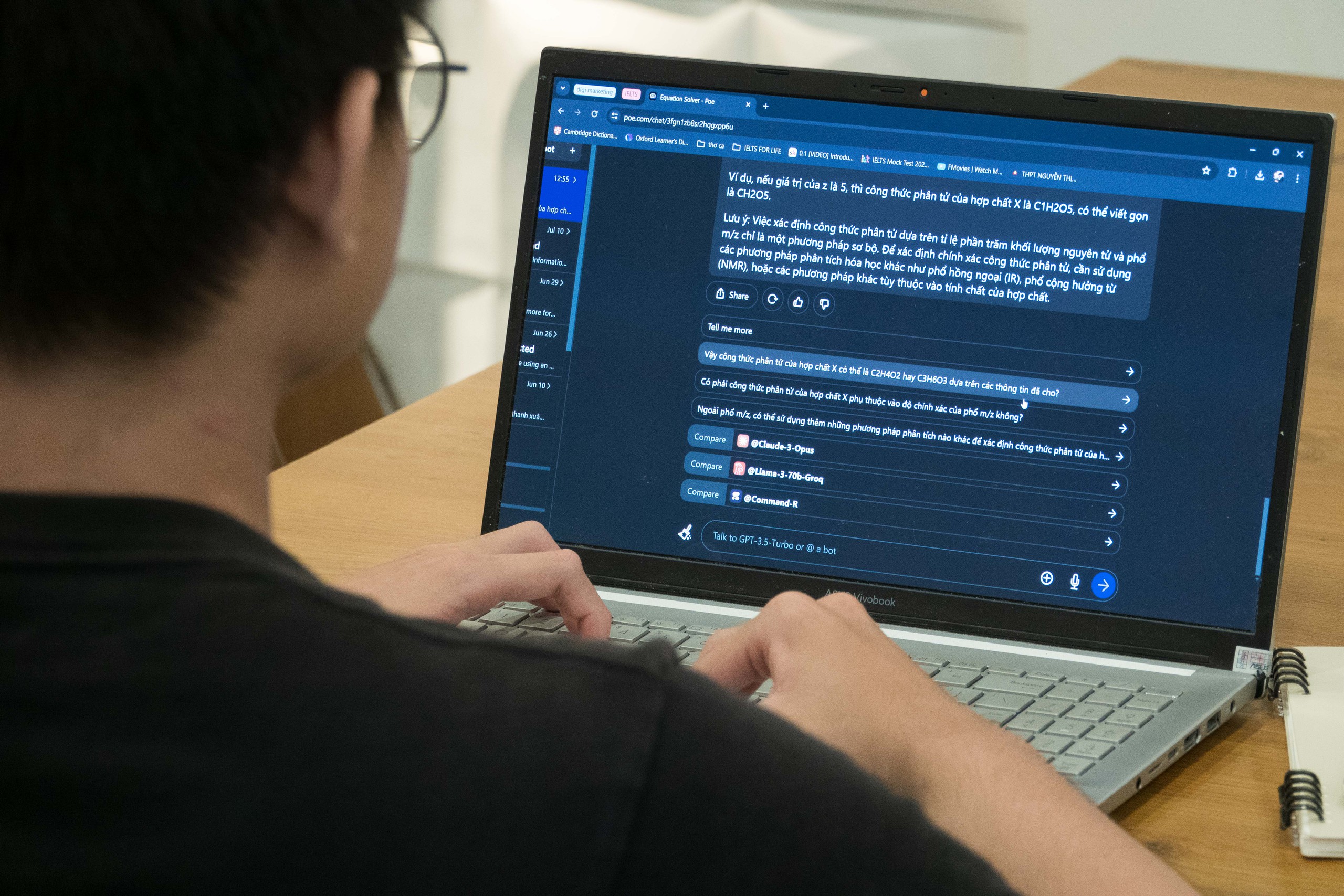
Students are increasingly using AI for learning and scientific research.
Another report published in the Education journal in January concluded that 89.2% of students from 6 member universities of the Vietnam National University Ho Chi Minh City use the free version of ChatGPT for purposes such as searching for information and documents on academic and research topics; translating and explaining specialized terminology; and doing assignments…
AI SHORTENS RESEARCH TIME
Nguyen Dinh Minh An, a psychology student at the University of Social Sciences and Humanities (Vietnam National University Ho Chi Minh City), said he uses AI to get an overview of the research situation because AI synthesizes information quickly. "In a short time, AI can suggest a general overview of the topic I'm researching. Then, based on the AI's suggestions, I delve deeper into the subject through reputable scientific articles or research papers," An shared.
TNQ, from the Faculty of Information Technology at the University of Science (Vietnam National University Ho Chi Minh City), also believes that AI accelerates the research process, especially in the machine learning model evaluation phase. "During experiments, I need to check the source code used to implement the machine learning model and evaluation program. If I had to manually search or find solutions, I would have to spend a lot of time detecting errors in that source code. Thanks to AI, errors can be identified much faster," Q. said.
Furthermore, according to VP, a student at a private university in Ho Chi Minh City, AI also helps shorten the time it takes to write reports. "I now only need about 12 hours to complete a report, compared to at least 3 days before using AI," P. said.
POTENTIAL RISK OF PLAGIARISM
Dr. Truong Thanh Cong, Head of the Data Science Department at the University of Finance and Marketing (Ho Chi Minh City), stated that there is currently no official document regulating the use of AI, especially Generative AI, in education and research in Vietnam. Meanwhile, universities in Vietnam are in the process of developing policies on this issue.
Globally, Dr. Cong cited the results of a 2024 AI landscape study, published in May by the EDUCAUSE organization, which indicated that approximately 77% of higher education institutions do not yet have AI policies, based on a survey of experts from over 900 educational institutions.
However, some universities have implemented AI-powered cheating tools. But research published in the International Journal of Educational Technology in Higher Education in September by authors from the British University Vietnam (BUV) and James Cook University (Singapore) shows that students can trick AI-powered tools to cheat. According to the research results, the average accuracy of AI-powered cheating tools is only 39.5% when scanning AI-generated text. Especially when these texts have added spelling errors or arbitrary word repetitions, the accuracy of the tool drops to 22.14%.
Speaking to Thanh Nien newspaper, Dr. Mike Perkins, Head of the Research and Development Center at BUV, advised students to be transparent about their use of AI. "Students declaring that they use AI in their research and explaining how the tool supports them is an honest way to do things. I believe AI should be used to help us achieve multiple goals, rather than just to complete goals in a shorter time. The emergence of AI is not intended to completely replace our efforts," Dr. Perkins emphasized.
Lecturer Nguyen Thanh Luan, M.Sc., from the Faculty of Business Administration, Ho Chi Minh City University of Foreign Languages - Information Technology, shared that he once discovered a case where a student used AI to write content. "In this case, the student violated scientific integrity by using a tool to write for them. Since there are no specific penalties, I only asked the student to rewrite or remove that part of the content altogether," he said.
According to Mr. Luan, the writing style of AI is easily recognizable because of its polished expression with grandiose words, such as holistic perspective, by virtue of, notwithstanding, etc. "Although students can utilize AI to support each stage of research such as topic research, summarizing research findings, or writing reports, I advise them to conduct their own research to improve their research capabilities and academic writing skills," he shared.
Dr. Nohman Khan, Executive Director of Connecting Asia (Malaysia), told Thanh Nien newspaper that while the use of AI is inevitable and this tool can assist researchers in writing reports and scientific papers in a short time, they risk plagiarism without realizing it. To avoid this, Dr. Khan advises researchers to pay attention to citation checking, rephrasing, and not to copy verbatim.
MSc. Nguyen Thanh Luan, lecturer at the Faculty of Business Administration, Ho Chi Minh City University of Foreign Languages - Information Technology.
HOW TO USE AI CORRECTLY
Dr. Huynh Van Thong, Head of the Communication Department, Faculty of Journalism and Communication, University of Social Sciences and Humanities, Ho Chi Minh City, believes that AI and technological applications can make human life more convenient, efficient, and useful if applied correctly. In student research, he divides AI into three levels of support: manipulation, search, and inference.
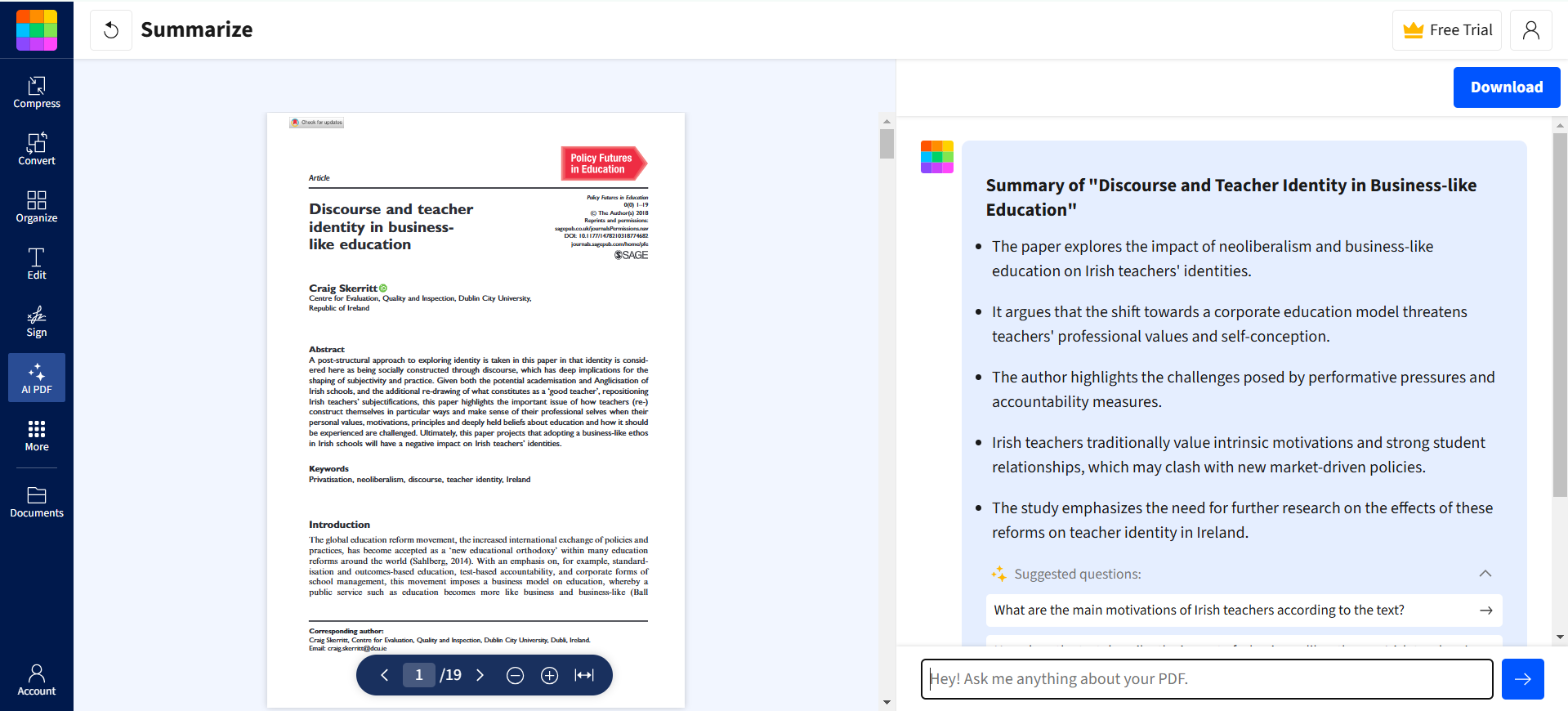
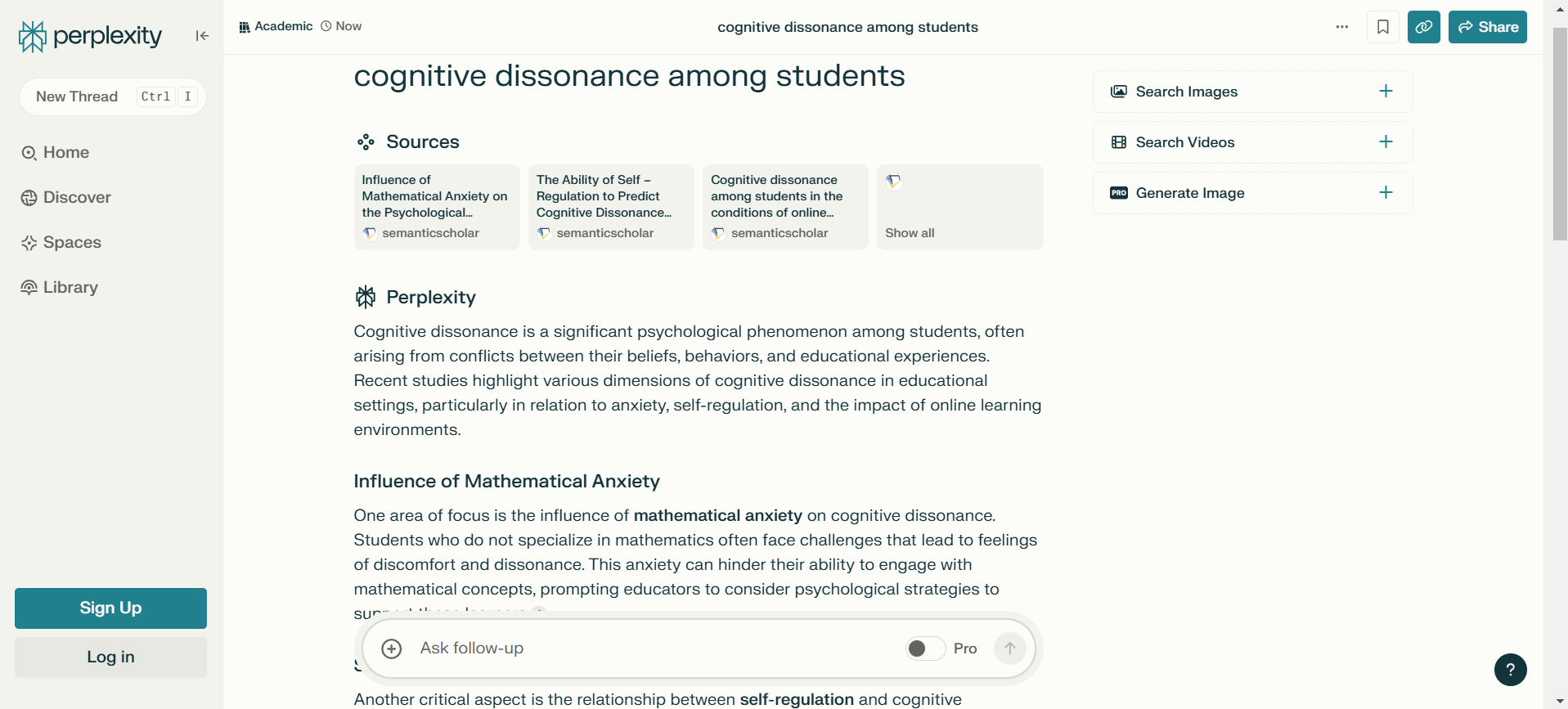
AI tools help students create research reviews, summarize scientific papers, and more.
At the first level, AI helps students perform technical tasks such as calculations, statistical analysis, presentation of references, and text editing. "The challenge lies in students knowing how to utilize the tool," Dr. Thong shared.
At the second level, AI helps in looking up concepts and terminology in research and providing an overview of the research problem... Dr. Thong said that although AI can produce quick and comprehensive results, students should not overuse it because it can lead to a loss of the habit of accessing original sources. "If students rely on AI to search for information on every problem they encounter, they will only have a superficial understanding, and may even access inaccurate information because AI can suggest incorrect results. This is a manifestation of 'borrowed knowledge,' causing students to gradually lack a foundation in research," he said.
At the third level, AI becomes a thinker and reasoner for students through suggestions and critiques. "Using AI to gauge thinking is still appropriate, but students need to be wary of the tool's 'diplomatic tactics' because the answers are often geared towards pleasing the user," the PhD continued.
Furthermore, Dr. Thong argues that the use of AI in scientific research creates a conflict of academic values. "At this point, the process of copying answers from AI is no longer a technical matter but has become the copying of thought. As a result, users no longer think critically about the problem, and their thinking ability erodes," Dr. Thong stated.
To overcome the aforementioned challenges, Dr. Thong suggested that students focus on developing their skills and critical thinking. "Then, students will know how much to use AI, or when to stop using AI appropriately in their research," he advised.
A national policy framework is needed regarding the use of AI.
The use of AI in learning and research is inevitable. However, according to Dr. Truong Thanh Cong, a national policy framework for the use of AI is needed. "From this general policy framework, state agencies can issue specific circulars, decrees, or laws. At that point, specific regulations on the use of AI in teaching and learning will be established. Once a complete legal framework is in place, along with tools for testing and evaluation, the use of AI will become more transparent, and learners will be more responsible in using AI," Dr. Cong stated.
Source: https://thanhnien.vn/sinh-vien-dung-ai-loi-ich-di-kem-rui-ro-18524122517221332.htm



![[Live] 2025 Community Action Awards Gala](/_next/image?url=https%3A%2F%2Fvphoto.vietnam.vn%2Fthumb%2F1200x675%2Fvietnam%2Fresource%2FIMAGE%2F2025%2F12%2F16%2F1765899631650_ndo_tr_z7334013144784-9f9fe10a6d63584c85aff40f2957c250-jpg.webp&w=3840&q=75)
![[Photo] Prime Minister Pham Minh Chinh receives the Governor of Tochigi Province (Japan)](/_next/image?url=https%3A%2F%2Fvphoto.vietnam.vn%2Fthumb%2F1200x675%2Fvietnam%2Fresource%2FIMAGE%2F2025%2F12%2F16%2F1765892133176_dsc-8082-6425-jpg.webp&w=3840&q=75)

![[Photo] Prime Minister Pham Minh Chinh receives Lao Minister of Education and Sports Thongsalith Mangnormek](/_next/image?url=https%3A%2F%2Fvphoto.vietnam.vn%2Fthumb%2F1200x675%2Fvietnam%2Fresource%2FIMAGE%2F2025%2F12%2F16%2F1765876834721_dsc-7519-jpg.webp&w=3840&q=75)
![[Image] Leaked images ahead of the 2025 Community Action Awards gala.](/_next/image?url=https%3A%2F%2Fvphoto.vietnam.vn%2Fthumb%2F1200x675%2Fvietnam%2Fresource%2FIMAGE%2F2025%2F12%2F16%2F1765882828720_ndo_br_thiet-ke-chua-co-ten-45-png.webp&w=3840&q=75)






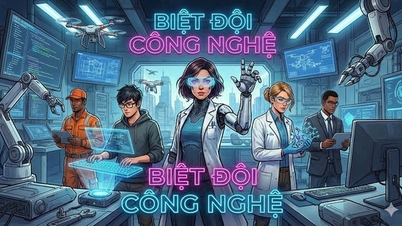

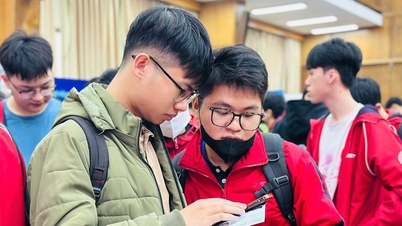
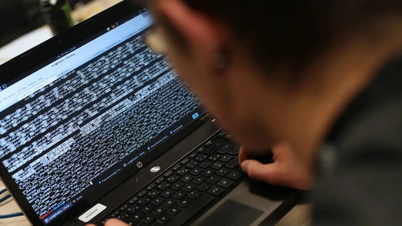
































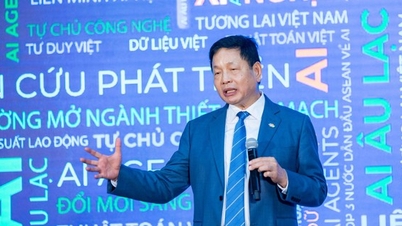




















![[Photo] Prime Minister Pham Minh Chinh attends the Vietnam Economic Forum 2025](https://vphoto.vietnam.vn/thumb/402x226/vietnam/resource/IMAGE/2025/12/16/1765893035503_ndo_br_dsc-8043-jpg.webp)



































Comment (0)